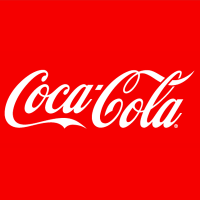 fung_derf
10 months ago
fung_derf
10 months ago
Stole this from another poster, but good read.
>>> Better Buy: Coca-Cola vs. PepsiCo
Motley Fool
By Stefon Walters
Sep 28, 2023
https://www.fool.com/investing/2023/09/28/better-buy-coca-cola-vs-pepsico/?source=eptyholnk0000202&utm_source=yahoo-host&utm_medium=feed&utm_campaign=article
KEY POINTS
Coca-Cola's higher margins are a testament to its efficiency and pricing power.
PepsiCo's broad portfolio helps hedge against declining demand in the beverage market.
Both have increased their dividend annually for decades -- making them Dividend Kings.
Investors can't go wrong with either choice, but one stands out as the better long-term option.
When it comes to non-alcoholic beverage companies, there's Coca-Cola (KO) and PepsiCo (PEP) -- and then there's everyone else. In the U.S., the two account for around 71% of the carbonated soft drink market. The dominance of that duopoly makes them attractive investment opportunities.
For investors looking to invest in one of these companies, there's no "wrong" option to go with here. However, each company has its own unique strengths and focus areas. Let's see which offers a more compelling case for investors looking to choose one to add to their portfolio.
Coca-Cola's financials seem to be stronger
Coca-Cola is the market leader in non-alcoholic beverages, but one thing that may surprise people is just how much more revenue PepsiCo brings in. In Q2 2023, Coca-Cola made around $12 billion in revenue, more than $10 billion less than PepsiCo made.
Despite the gap in revenue, both companies are similar in net incomes, which is a testament to Coca-Cola's profit margins.
Higher profit margins are important because they give companies more financial flexibility. Higher margins generally come with more cash flow, which companies use for things like research and development, acquisitions, and paying dividends.
Coca-Cola can operate at higher margins largely because of its focus on beverages, operational efficiency, and the pricing power it has thanks to its strong brands. PepsiCo's margins aren't shabby by any means, but its broader business means it has more complexities to deal with, which can lower efficiency.
There's a difference in portfolio diversification
PepsiCo's revenue gap over Coca-Cola can be attributed to its larger portfolio that includes beverages, snacks, and nutrition products. Coca-Cola's portfolio only consists of beverages. Both have iconic brands, including, but not limited to, the following:
Coca-Cola: Coca-Cola, Sprite, Powerade, Dasani, and Minute Maid.
PepsiCo: Pepsi, Gatorade, Lay's, Doritos, and Aquafina.
PepsiCo's vast portfolio can help provide a cushion during times when beverage sales may lag or consumer preferences shift. Coca-Cola dominates the beverage segment, but PepsiCo's diverse portfolio allows it to take advantage of consumer trends across multiple categories.
A good example would be PepsiCo's introduction of products tailored to health-conscious consumers, among them Naked Juice for vegetable and fruit-based smoothies, whole grain breakfast options, and sugar-free, zero-calorie alternatives to traditional sodas.
Both companies have admirable dividends
Regarding dividends, Coca-Cola leads PepsiCo slightly. At their current share prices, Coca-Cola has a 3.2% yield compared to PepsiCo's 2.8%.
Coca-Cola has increased its dividend annually for 61 straight years while PepsiCo has a 50-year streak, so both are Dividend Kings. However, PepsiCo has been increasing its dividend by larger percentages in recent years. PepsiCo has boosted its payouts by 36% in the past five years compared to Coca-Cola's 18%.
Dividend yields fluctuate with stock price, so you don't want yield to be a determining factor in your investment thesis, but it's important nonetheless. Maybe more important, though, is the sustainability of the dividend.
Neither Coca-Cola nor PepsiCo is in danger of needing to cut their dividends, but it's worth noting how much lower Coca-Cola's 56% dividend payout ratio is than PepsiCo's 81%. Coca-Cola's lower payout ratio gives it more flexibility to reinvest in the business or potentially accelerate its dividend increases.
Which should investors go with?
For long-term investors, the better choice now seems to be Coca-Cola. The stock is more expensive, with a price-to-sales ratio of 5.6 compared to PepsiCo's 2.7, but it has the foundation to be a stable and high-yielding stock for the long haul.
Between its top-tier brand equity, impressive margins, and lucrative dividend, Coca-Cola seems to be the more appealing choice for investors looking for reliability and a shareholder-friendly company. It also passes the Warren Buffett test as it is one of his top holdings.


 1984ISHERE
1 month ago
1984ISHERE
1 month ago
 1984ISHERE
1 month ago
1984ISHERE
1 month ago
 1984ISHERE
1 month ago
1984ISHERE
1 month ago
 1984ISHERE
1 month ago
1984ISHERE
1 month ago
 1984ISHERE
1 month ago
1984ISHERE
1 month ago
 1984ISHERE
2 months ago
1984ISHERE
2 months ago
 1984ISHERE
2 months ago
1984ISHERE
2 months ago
 1984ISHERE
2 months ago
1984ISHERE
2 months ago
 1984ISHERE
2 months ago
1984ISHERE
2 months ago
 1984ISHERE
2 months ago
1984ISHERE
2 months ago
 1984ISHERE
2 months ago
1984ISHERE
2 months ago
 1984ISHERE
2 months ago
1984ISHERE
2 months ago
 1984ISHERE
2 months ago
1984ISHERE
2 months ago
 longview1
2 months ago
longview1
2 months ago
 1984ISHERE
2 months ago
1984ISHERE
2 months ago
 longview1
2 months ago
longview1
2 months ago
 mr_sano
2 months ago
mr_sano
2 months ago
 DeerBalls
1 year ago
DeerBalls
1 year ago
 TRUSTUNITS1000000
1 year ago
TRUSTUNITS1000000
1 year ago
 TRUSTUNITS1000000
1 year ago
TRUSTUNITS1000000
1 year ago
 sylvia07
2 years ago
sylvia07
2 years ago
 sylvia07
2 years ago
sylvia07
2 years ago
 sylvia07
2 years ago
sylvia07
2 years ago
